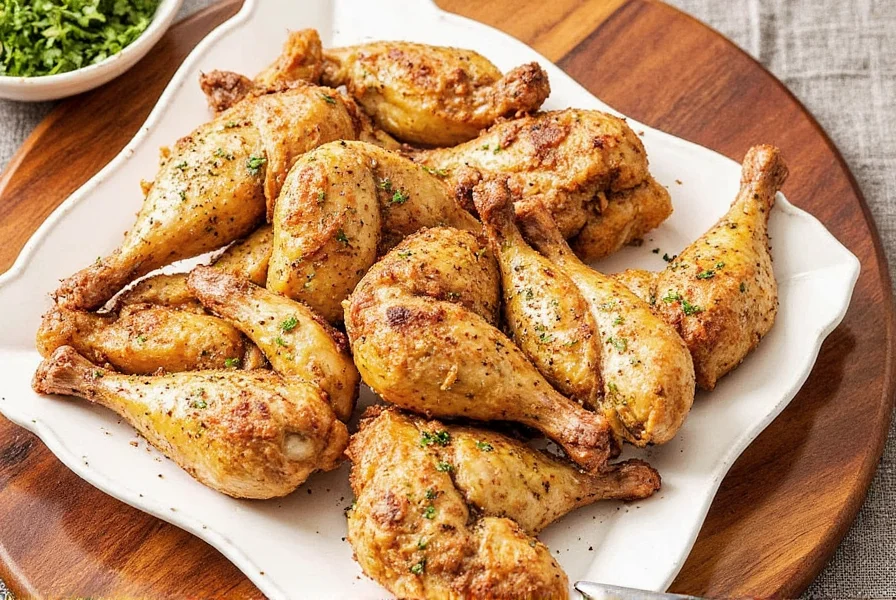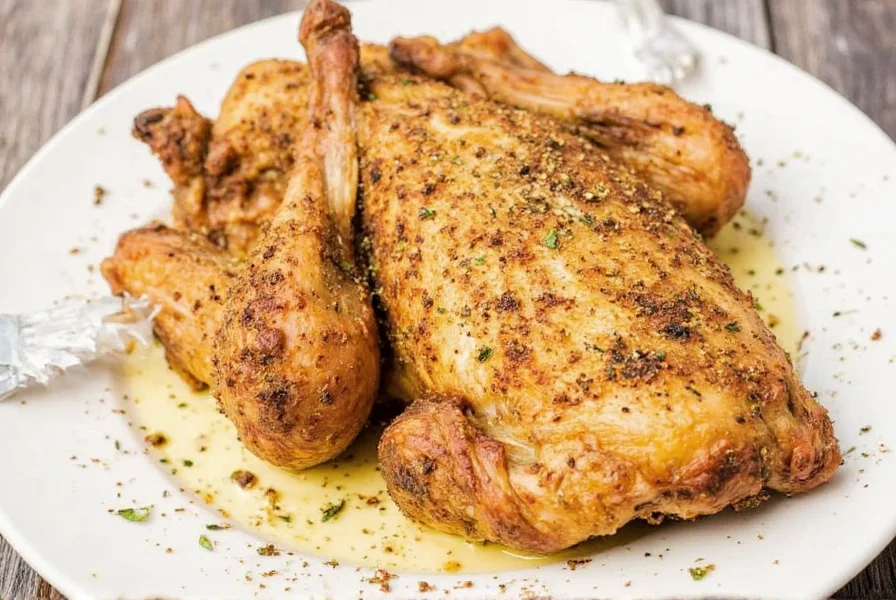Seasoning chicken properly is simple when you follow these proven steps. Whether you're grilling, roasting, or pan-searing, the right technique ensures juicy, flavorful results every time. Here's your complete guide to mastering chicken seasoning.
Table of Contents
Step 1: Start with Salt
Salt is the foundation of perfect seasoning. It enhances natural flavors and helps retain moisture. For best results:
- Use 1/2 teaspoon of kosher salt per pound of chicken
- Apply salt at least 30 minutes before cooking (or up to 24 hours for brining)
- For even distribution, rub salt evenly over all surfaces including under the skin
Pro Tip: Kosher salt is preferred by chefs for its clean flavor and easy pinch control. Avoid table salt as it's too dense and can oversalt your chicken.
Step 2: Choose Your Spice Blend
After salt, build flavor with complementary spices. The right blend depends on your cooking method and cuisine style:
| Flavor Profile | Best For | Key Ingredients | Application Tip |
|---|---|---|---|
| Smoky & Savory | Grilling, BBQ | Smoked paprika, garlic powder, onion powder | Toast spices lightly before mixing for deeper flavor |
| Mediterranean | Roasting, Baking | Oregano, thyme, lemon zest, olive oil | Combine with olive oil to create a paste for better adhesion |
| Spicy Southwestern | Fajitas, Tacos | Chili powder, cumin, coriander, lime juice | Add acidic ingredients like lime juice to balance heat |
| Asian-Inspired | Stir-fries, Pan-searing | Ginger, garlic, soy sauce, sesame oil | Marinate for 1-2 hours maximum to prevent texture breakdown |
Step 3: Marinate Properly
Marinating transforms flavor penetration and tenderness. Follow these guidelines:
- Acidic marinades (vinegar, citrus, yogurt): 2-12 hours
- Oil-based marinades: 30 minutes to 24 hours
- Always marinate in the refrigerator (never at room temperature)
- For skin-on chicken, lift skin slightly to apply marinade underneath
Pro Tip: Add a small amount of sugar (1-2 teaspoons per cup of marinade) to promote caramelization during cooking.
Step 4: Rest Before Cooking
Letting seasoned chicken rest before cooking ensures even cooking and better flavor absorption:
- Bring chicken to room temperature (20-30 minutes)
- Pat dry with paper towels before cooking for better browning
- For whole chickens, rest for at least 1 hour after seasoning
Step 5: Adjust for Cooking Method
Each cooking technique requires specific seasoning adjustments:
| Cooking Method | Seasoning Adjustments | Key Considerations |
|---|---|---|
| Grilling | Higher salt ratio, bold spices | Apply dry rub 1 hour before grilling; avoid sugary rubs that burn easily |
| Roasting | Herbs under skin, butter baste | Place fresh herbs between skin and meat for direct flavor infusion |
| Pan-Searing | Lighter seasoning, finish with fresh herbs | Season just before cooking to prevent moisture loss |
| Slow Cooking | Reduced salt, acid at end | Add salt only after cooking to prevent toughness |
Frequently Asked Questions
How much salt should I use on chicken?
Use 1/2 teaspoon of kosher salt per pound of chicken. For brining, increase to 1/4 cup salt per quart of water. Always taste as you go - start with less and adjust before cooking.
Can I season chicken too early?
Yes - for dry rubs, 30 minutes to 24 hours is ideal. For wet marinades with acid (vinegar, citrus), don't exceed 12 hours as it can start to "cook" the chicken. For salt-only seasoning, you can season up to 48 hours ahead for deeper flavor penetration.
What's the best way to apply seasoning to skin-on chicken?
For maximum flavor, gently lift the skin away from the meat and rub seasoning directly onto the meat underneath. Then lightly season the skin surface. This technique ensures flavor penetrates the meat while the skin crisps properly during cooking.

















 浙公网安备
33010002000092号
浙公网安备
33010002000092号 浙B2-20120091-4
浙B2-20120091-4